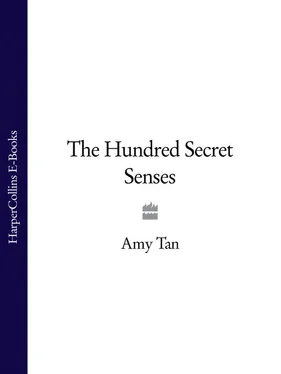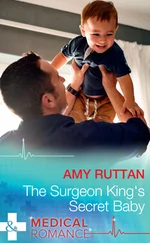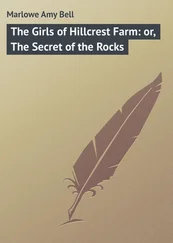By junior high, my version of the afterlife was a bit more somber. I pictured it as a place of infinite knowledge, where all things would be revealed – sort of like our downtown library, only bigger, where pious voices enumerating what thou shall and shall not do echoed through loudspeakers. Also, if you were slightly but not hopelessly bad, you didn’t go to hell, but you had to pay a huge fine. Or maybe if you did something worse, you went to a place similar to continuation school, which was where all the bad kids ended up, the ones who smoked, ran away from home, shoplifted, or had babies out of wedlock. But if you had followed the rules, and didn’t wind up a burden on society, you could advance right away to heaven. And there you’d learn the answers to all the stuff your catechism teachers kept asking you, like:
What should we learn as human beings?
Why should we help others less fortunate than ourselves?
How can we prevent wars?
I also figured I’d learn what happened to certain things that were lost, such as Barbie’s feather boa and, more recently, my rhinestone necklace, which I suspected my brother Tommy had filched, even though he said, ‘I didn’t take it, swear to God.’ What’s more, I wanted to look up the answers to a few unsolved mysteries, like: Did Lizzie Borden kill her parents? Who was the Man in the Iron Mask? What really happened to Amelia Earhart? And out of all the people on death row who had been executed, who was actually guilty and who was innocent? For that matter, which felt worst, being hanged, gassed, or electrocuted? In between all these questions, I’d find the proof that it was my father who told the truth about how Kwan’s mother died, not Kwan.
By the time I went to college, I didn’t believe in heaven and hell anymore, none of those metaphors for reward and punishment based on absolute good and evil. I had met Simon by then. He and I would get stoned with our friends and talk about the afterlife: ‘It just doesn’t make sense, man – I mean, you live for less than a hundred years, then everything’s added up and, boom, you go on for billions of years after that, either lying on the proverbial beach or roasting on a spit like a hot dog.’ And we couldn’t buy the logic that Jesus was the only way. That meant that Buddhists and Hindus and Jews and Africans who had never even heard of Christ Almighty were doomed to hell, while Ku Klux Klan members were not. Between tokes, we’d speak while trying not to exhale: ‘Wow, what’s the point in that kind of justice? Like, what does the universe learn after that?’
Most of our friends believed there was nothing after death – lights out, no pain, no reward, no punishment. One guy, Dave, said immortality lasted only as long as people remembered you. Plato, Confucius, Buddha, Jesus – they were immortal, he said. He said this after Simon and I attended a memorial service for a friend, Eric, whose number came up in the draft and who was killed in Vietnam.
‘Even if they weren’t really the way they’re now remembered?’ Simon asked.
Dave paused, then said, ‘Yeah.’
‘What about Eric?’ I asked. ‘If people remember Hitler longer than Eric, does that mean Hitler is immortal but Eric isn’t?’
Dave paused again. But before he could answer, Simon said firmly, ‘Eric was great. Nobody will ever forget Eric. And if there’s a paradise, that’s where he is right now.’ I remember I loved Simon for saying that. Because that’s what I felt too.
How did those feelings disappear? Did they vanish like the feather boa, disappear when I wasn’t looking? Should I have tried harder to find them again?
It’s not just grudges that I hang on to. I remember a girl on my bed. I remember Eric. I remember the power of inviolable love. In my memory, I still have a place where I keep all those ghosts.
4 THE GHOST MERCHANT’S HOUSE
My mother has another new boyfriend, Jaime Jofré. I don’t have to meet him to know he’ll have charm, dark hair, and a green card. He’ll speak with an accent and my mother will later ask me, ‘Isn’t he passionate?’ To her, words are more ardent if a man must struggle to find them, if he says ‘ amor ’ with a trill rather than ordinary ‘love.’
Romantic though she is, my mother is a practical woman. She wants proof of love: Give and you should receive. A bouquet, ballroom dancing lessons, a promise of eternal fidelity it must be up to the man to decide. And there’s also Louise’s corollary of sacrificial love: Give up smoking for him and receive a week at a health spa. She prefers the Calistoga Mud Baths or the Sonoma Mission Inn. She thinks men who understand this kind of exchange are from emerging nations – she would never say ‘the third world.’ A colony under foreign dictatorship is excellent. When emerging nation isn’t available, she’ll settle for Ireland, India, Iran. She firmly believes that men who have suffered from oppression and a black-market economy know there’s more at stake. They try harder to win you over. They’re willing to deal. Through these guiding thoughts, my mother has found true love as many times as she’s quit smoking for good.
Hell yes, I’m furious with my mother. This morning she asked if she could drop by to cheer me up. And then she spent two hours comparing my failed marriage with hers to Bob. A lack of commitment, an unwillingness to make sacrifices, no give, all take – those are the common faults she’s noticed in Simon and Bob. And she and I both ‘gave, gave, gave from the bottom of our hearts.’ She bummed a cigarette from me, then a match.
‘I saw it coming,’ she said, and inhaled deeply. ‘Ten years ago. Remember that time Simon went to Hawaii and left you home when you had the flu?’
‘I told him to go. We had nonrefundable airline tickets and he could sell only one.’ Why was I defending him?
‘You were sick. He should have been giving you chicken soup rather than cavorting on the beach.’
‘He was cavorting with his grandmother. She’d had a stroke.’ I was starting to sound as whiny as a kid.
She gave me a sympathetic smile. ‘Sweetie, you don’t have to be in denial anymore. I know what you’re feeling. I’m your mother, remember?’ She stubbed out her cigarette before assuming her matter-of-fact, social worker manner: ‘Simon didn’t love you enough, because he was lacking, not you. You are abundantly lovable. There is nothing wrong with you .’
I gave a stiff nod. ‘Mom, I really should get to work now.’
‘You go right ahead. I’ll just have another cup of coffee.’ She looked at her watch and said, ‘The exterminators flea-bombed my apartment at ten. Just to be safe, I’d like to wait another hour before I go back.’
And now I’m sitting at my desk, unable to work, completely drained. What the hell does she know about my capacity for love? Does she have any idea how many times she’s hurt me without knowing it? She complains that all that time she spent with Bob was a big waste. What about me? What about the time she didn’t spend with me? Wasn’t that a waste too? And why am I now devoting any energy to thinking about this? I’ve been reduced to a snivelly little kid again. There I am, twelve years old, facedown on my twin bed, a corner of the pillow stuffed into my mouth so that Kwan can’t hear my mangled sobs.
‘Libby-ah,’ Kwan whispers, ‘something matter? You sick? Eat too much Christmas cookie? Next time I don’t make so sweet. … Libby-ah, you like my present? You don’t like, tell me, okay? I make you another sweater. You tell me what color. Knit it take me only one week. I finish, wrap up, like surprise all over again. … Libby-ah? I think Daddy Mommy come back from Yosemite Park bring you beautiful present, pictures too. Pretty snow, mountaintop … Don’t cry! No! No! You not mean this. How you can hate you own mother? … Oh? Daddy Bob too? Ah, zemma zaogao. … ‘
Читать дальше












